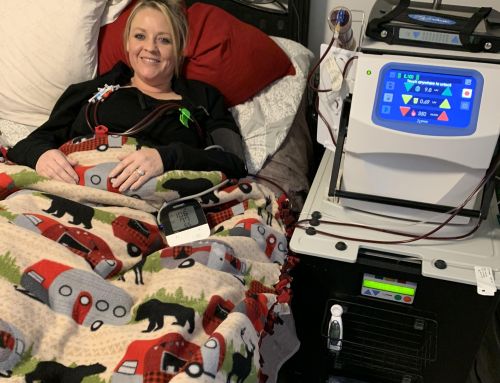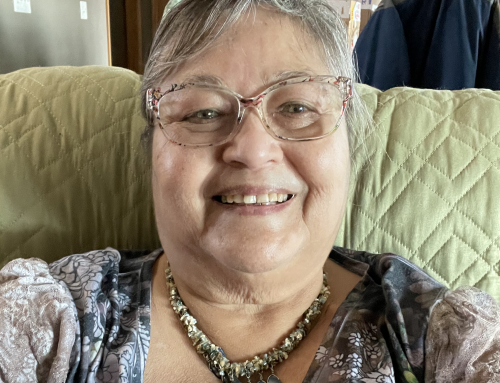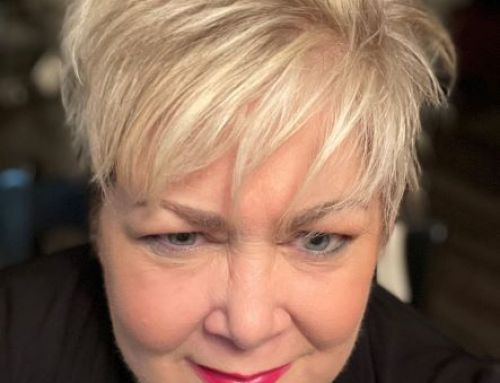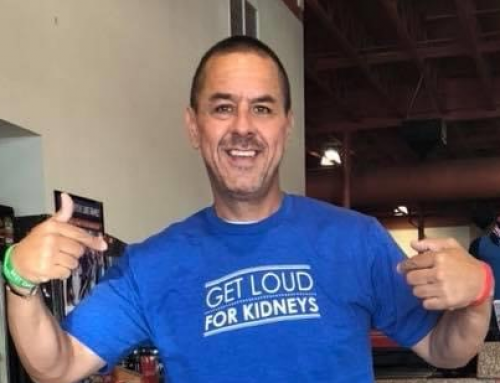Re: Violations of the Medicare Secondary Payer Statute, 42 U.S.C. § 1395y(b), by Washington State Health Insurance Plans
Dear Ms. Parker and Ms. Dotzel:
We write to bring to your attention the fact that at least three group insurers in the state of Washington are offering large plans with provisions that violate the explicit terms of the Medicare Secondary Payer Statute. These violations not only potentially subject the insurers to statutory civil monetary penalties, but render these insurers’ plans nonconforming under applicable regulations.
As America’s largest patient-led organization representing 29,000 dialysis patients and family members, Dialysis Patient Citizens (DPC) strives to improve the quality of life for all dialysis patients through education and advocacy. As part of our efforts, we work closely with patients to navigate an increasingly complex system of health insurance coverage, which includes unique and often times discriminatory rules and requirements for patients with End Stage Renal Disease (ESRD).
ESRD, or kidney failure, is a devastating chronic disease frequently accompanied by additional co-morbid conditions that require a complex set of medical services to remain alive. Without the benefit of a transplant, ESRD requires patients to undergo dialysis treatments. Patients receive these treatments in specially designed centers or in their homes at least three times per week for up to four hours per treatment. Dialysis is a life sustaining and essential health benefit, without which patients with kidney failure would die. We are therefore extremely concerned when we confront health and welfare benefit policies and insurance plan designs that isolate our patients and treat them differently by imposing insurmountable economic obstacles unique to the treatment of ESRD. We write today to formally advise you of such problematic designs, and to urge you to investigate further.
The Omnibus Budget Reconciliation Act of 1980 (P.L. 96-499) (“OBRA”) established the Medicare Secondary Payer (MSP) program, which spells out specific conditions under which other insurers are required to pay first and Medicare is responsible for qualified, secondary payments. OBRA made Medicare a secondary payer for medical claims involving non-group health insurance such as liability and no-fault insurance. In the Omnibus Budget Reconciliation Act of 1981, Congress expanded MSP to cover certain Medicare beneficiaries in employer-sponsored group health plans. MSP was further refined in the Tax Equity and Fiscal Responsibility Act (P.L. 97-248; TEFRA) of 1982 and other statutes. In general, Medicare is now the secondary payer for an item or service when payment has been made, or can reasonably be expected to be made, by responsible third-party payers.
Under 42 U.S.C. § 1395y(b)(1)(C), persons with End-Stage Renal Disease (ESRD) who are under the age of 65 can qualify for Medicare based on a diagnosis of ESRD. Effective for items and services furnished on or after August 5, 1997, the statute provides that:
(C) Individuals with end stage renal disease. A group health plan (as defined in subparagraph (A)(v))—
(i) may not take into account that an individual is entitled to or eligible for benefits under this subchapter under section 426–1 of this title during the 12-month period which begins with the first month in which the individual becomes entitled to benefits under part A of this subchapter under the provisions of section 426–1 of this title, or, if earlier, the first month in which the individual wouldhave been entitled to benefits under such part under the provisions of section 426–1 of this title if the individual had filed an application for such benefits; and
(ii) may not differentiate in the benefits it provides between individuals having end stage renal disease and other individuals covered by such plan on the basis of the existence of end stage renal disease, the need for renal dialysis, or in any other manner; except that clause (ii) shall not prohibit a plan from paying benefits secondary to this subchapter when an individual is entitled to or eligible for benefits under this subchapter under section 426–1 of this title after the end of the 30-month period described in clause (i).
Under 42 U.S.C. § 1395y(b)(3), the statute further provides:
(3)(C) – It is unlawful for an employer other entity to offer any financial or other incentive for an individual entitled to benefits under this title not to enroll (or to terminate enrollment) under a group health plan or a large group health plan which would (in the case of such enrollment) be a primary plan. Any entity that violates the previous sentence is subject to a civil money penalty of not to exceed $5,000 for each such violation.
Additionally, according to implementing regulations:
42 C.F.R. § 411.102
(a)(1) A group health plan of any size
(i) May not take into account the ESRD-based Medicare eligibility or entitlement of any individual who is covered or seeks to be covered under the plan; and
(ii)May not differentiate in the benefits it provides between individuals with ESRD and other individuals covered under the plan, on the basis of the existence of ESRD, or the need for dialysis, or in any other manner.
42 C.F.R. § 411.108
(a) Examples of actions that constitute “taking into account”. Actions by GHPs and LGHPS that constitute taking into account that an individual is entitled to Medicare on the basis of ESRD, age or disability (or eligible on the basis of ESRD) include, but are not limited to the following:…
(5)Imposing limitations on benefits for a Medicare entitled individual that do not apply to others enrolled in the plan, such as providing less comprehensive healthcare coverage, excluding benefits, reducing benefits, charging higher deductibles or coinsurance, providing for lower annual or lifetime benefit limits, or more restrictive pre-existing illness limitations…..
(9)Providing misleading or incomplete information that would have the effect of inducing a Medicare entitled individual to reject the employer plan, thereby making Medicare the primary payer.
Plans that impermissibly “take into account” Medicare entitlement of individuals with ESRD or differentiate in the benefits provided to individuals with ESRD, are to be deemed by CMS as nonconforming under 42 C.F.R. § 411.110.
Importantly, Medicare enrollment for individuals suffering from ESRD under the age of 65 is optional, not mandatory. There are advantages, and disadvantages, to Medicare enrollment for individuals with ESRD under the age of 65, which is why the federal government advises commercially insured individuals with ESRD to “think carefully” before electing to enroll in Medicare.1
Insurers in the Pacific Northwest have been in the vanguard of recent industry-wide efforts to use various pretexts to disenroll ESRD patients. In two states thus far—Idaho and Washington—state insurance commissioners have indicated that they will not use their authority to enforce ESRD patients’ MSP rights by striking non-conforming plan language, which is quite worrisome in that these state regulators are the first line of defense in protecting consumers. This has set up a state/federal confrontation from which kidney patients, who are physically and financially vulnerable, have much to lose if federal supremacy is not asserted.
In the state of Washington, Providence Health Plans, Premera BlueCross and Regence BlueShield are each offering group plans that violate the MSP statutes and regulations. We are providing details of some of these plans below. We respectfully request that CMS review these plans and institute the regulatory proceedings required of non-conforming group health plans pursuant to 42 C.F.R. § 411.110 et seq. For the two insurers, Providence and Premera, presently offering plans that violate the prohibitions of 42 U.S.C. § 1395y(b)(3), we respectfully request that CMS institute proceedings to assess the statutory civil monetary penalties.
A. Providence Health Plans
Attachment A contains Providence Health Plan’s (Providence) 2016 Benefit Plan materials for employees for 2016; the Dialysis benefit appears on page 49-50 of Attachment A. For Providence’s Health Reimbursement Benefit plan members receiving dialysis, in the first three months of dialysis, the plan coverage and patient responsibility mirrors that of other covered health care services. But then, new language appears in the dialysis benefit description:
First of the 4th month of dialysis
Deductible does not apply.
-
- Paid at 100% up to 125% of the Medicare allowable amount.
Medicare Part B Reimbursement
If you or your enrolled Eligible Family Dependent has End-Stage Renal Disease (ESRD), the Plan pays as Primary during the first 30 months of dialysis, or the first 30 month of treatment in connection with a kidney transplant. Thereafter, Medicare becomes the Primary Payer of benefits.
The Medicare Secondary Payer statute requires the Plan to identify Members in the Plan, including enrolled Eligible Family Dependents, who are eligible for Medicare, including those eligible because of ESRD. To ensure the correct Coordination of Benefits, Members are required to provide the Plan the basis for their eligibility for Medicare (age, ESRD, or disability) and the effective date of Medicare Part A and Part B.
During the period where the Plan is the Primary Payer, Medicare Part B monthly premiums for Members, including enrolled Eligible Family Dependents, that have become entitled, including dual-entitlement, to Medicare based on ESRD, will be covered by the Plan, up to a lifetime maximum amount of $5,500. Each quarter, information is submitted to PHP for reimbursement.
Thus, after three months of dialysis, Providence limits its payment to providers to between 100-125% of the Medicare payment, leaving members who don’t enroll in Medicare, and thus don’t have Medicare coverage secondary to their commercial coverage, personally responsible for the remaining balances owed providers. An examination of the entire plan reveals that no other covered medical service, save for dialysis, has benefits limited in this manner.
The plain language of the Providence benefit design related to Medicare enrollment violates 42 C.F.R. § 411.108(a)(9). The language is patently misleading, conveying the impression that for members with ESRD, Medicare enrollment is required, not optional. While it is true the language is broadly drafted to implicate Medicare enrollment is required for any Medicare eligible member, not just those with ESRD, this language only appears as part of the dialysis benefit. Further, the Providence benefit is incomplete, omitting material information about the potential consequences of Medicare enrollment for members with ESRD, including:
- Medicare Part B premiums are adjusted for income and may run over $300/month,exhausting the Providence cap during the initial 30 months, leaving members personally responsible for the premiums for the remainder of the 30 months;
- Members will assume life-time responsibility for premiums, deductibles and co-pays in Medicare Parts A and D as well as in Part B;
- Members on a current transplant list may lose their place on the list when Medicare becomes primary or may have difficulty obtaining coverage for drugs if they previously had a transplant; and
- Members who enroll in Medicare cannot later change their mind and “opt-out” of Medicare enrollment without risking financial liability for any costs expended by Medicare.
And if a Providence member with ESRD enrolls in Medicare, the member’s commercial coverage will remain primary for a maximum of 30 months, at which point Medicare will automatically replace the Premera plan as the primary insurer. Providence’s offer to pay Medicare premiums therefore violates the terms of 42 U.S.C. § 1395y(b)(3).
B. Premera BlueCross
Premera BlueCross (Premera) instituted a new dialysis benefit design for its large group plans in 2015 and was overt about the intended purpose of the change. Attachment B contains the Premera’s final, Large Group Plan Booklet for 2015 for its grandfathered large group plans as filed with and approved by the Washington Office of the Insurance Commissioner (OIC). The Explanation Memo that Premera filed with the OIC appears starting on page 3 of Attachment B, which sets out the various plans and changes in the Benefit Booklets. Changes to the dialysis benefit were justified by Premera on page two of its Explanation Memo:
In order to encourage members to enroll in Medicare, we revised the cost-shares and allowable charge for dialysis due to end-stage renal disease. A description of the cost-shares can be found in a new benefit “Dialysis.” A new provision is added to the definition of “allowable charge.” (Attachment B, page 4, emphasis added).
The dialysis benefit language that Premera adopted in page 11 of its Member Handbook for this plan implements its intent to persuade members with ESRD to enroll in Medicare:
Dialysis
When you have end-stage renal disease (ESRD) you may be eligible to enroll in Medicare as soon as possible. If eligible, it is important to enroll in Medicare as soon as possible. When you enroll in Medicare, this plan and Medicare will coordinate benefits. In most cases, this means that you will have little or no out-of-pocket expenses.
As soon as you are enrolled in Medicare Part B, {our name} will pay your Medicare Part B.premiums. {Our name} will continue to pay these premiums for as long as you areenrolled in this plan and eligible for Medicare due to ESRD. (Attachment B, page 20).
The identical justification for the identical dialysis benefit was present in Premera’s 2015 Non-Grandfathered Large Group plans filed with the OIC, Attachment C, pages 5, 18.
Premera retained this dialysis benefit in its large group plans for 2016. Attachment D contains a Premera 2016 Large Group plan for 2016 filed and approved by the WA OIC, with the identical dialysis benefit set out above, appearing on page 44 of Attachment D.
The Premera dialysis benefit in its large group plans impermissibly differentiates in the benefits provided to individuals with ESRD and other plan members, and impermissibly takes into account that the members with ESRD qualify for Medicare. Premera large group plan members may qualify for Medicare for a variety of reasons, but Premera offers to pay Medicare premiums only for individuals with ESRD and only because they require dialysis.
When a Premera member with ESRD enrolls in Medicare, the member’s commercial coverage should remain primary for a maximum of 30 months, at which point Medicare will automatically replace the Premera plan as the primary insurer. Premera’s offer to pay Medicare premiums therefore violates the terms of 42 U.S.C. § 1395y(b)(3).
Premera also provides misleading or incomplete information about the consequences of Medicare enrollment, thus violating 42 C.F.R. § 411.108(a)(9). Nowhere in its materials does Premera tell its large group plan members that, among other things:
- Initially Medicare coverage will be secondary to the commercial plan;
- Medicare will automatically replace the commercial plan as the primary insurer after a maximum of 30 months;
- The member will assume life-time responsibility for premiums, deductibles and co-pays in Medicare Parts A, B and D;
- Members on a current transplant list may lose their place on the list when Medicare becomes primary;
- Members who enroll in Medicare cannot later change their mind and “opt-out” of Medicare enrollment without risking financial liability for any costs expended by Medicare financial risk; and
- Whether it will continue to pay Medicare Part B premiums once Medicare becomes the primary insurer.
C. Role of OIG Opinion in Premera and Providence Plans
As set out above, Providence and Premera’s respective offers to pay Medicare premiums for the members of their large group plans violate the MSP and implementing rules by taking into account the Medicare eligibility of members with ESRD, offering a different benefit (payment of Medicare premiums) for members with ESRD solely because they have ESRD, and by unlawfully incentivizing Medicare enrollment which will eventually replace the commercial plan as the primary insurer. At various points, the insurers have defended the payment of Medicare premiums solely for members with ESRD based on HHS-OIG Advisory Opinion 13-16, despite the fact that Opinion has no bearing on whether these plan designs violate the MSP.
In HHS-OIG Advisory Opinion 13-162, issued in November 2013, OIG advised the requesting insurer that based upon its proposal to pay Medicare Part B premiums for members diagnosed with ESRD, the OIG would not impose Civil Monetary Penalties for unlawful kickbacks or unlawful beneficiary inducement provided the insurer abided by the represented limits of its benefit design, including that:
- The insurer’s offer to pay premiums was offered to all members with ESRD presently receiving dialysis regardless of the provider used;
- The insurer “would not pressure, require or otherwise unduly influence or coerce”members with ESRD to enroll in Medicare;
- Members with ESRD “who chose not to enroll in Medicare would retain all of their current benefits;” and
- Only the enrollee themselves, and not the insurer, would evaluate and determine whether Medicare or the existing commercial plan is the more beneficial option, given their individual circumstances.
Importantly the OIG explicitly recognized the limits of its Opinion, including that:
- The Opinion is limited to the narrow question of whether the Requestor’s payment of Medicare Part B premium subsidies implicates the federal regulations governing beneficiary inducement and unlawful kickbacks that fall under OIG authority, and no other provisions of federal or state law;
- The OIG did not have authority to address, so did not analyze and expressed no approval on the lawfulness of the insurer’s benefit design under the MSP statutes and regulations,including the prohibitions on taking into account the ESRD-based Medicare eligibility of members or differentiating between benefits provided to members with ESRD and all other members. (OIG Advisory Opinion 13-16, page 8).
The offers to pay Medicare premiums exhibited in the Providence and Premera plans thus fall outside of the OIG Advisory Opinion for two reasons. First, these insurers do not respect the limits imposed by the Opinion: the plans do attempt to pressure or steer members with ESRD (and only those with ESRD) to enroll in Medicare, representing that the plan (not the member) has determined that Medicare enrollment is “important” or even “required”. Second, as outlined above, these insurers’ dialysis benefits unlawfully “take into account” Medicare eligibility, discriminate in benefits provided based on a diagnosis of ESRD and/or need for dialysis in violation of the MSP statutes and regulations—violations not addressed by the OIG Opinion.
D. Regence BlueShield
Multiple Regence BlueShield (Regence) large group plans offered in the State of Washington contain a “special” dialysis benefit. While the Regence plans generally do not offer to pay Medicare premiums, the plan design does impose limits on dialysis benefits not applicable to coverage for other medical services, and the benefit design is based on taking into account the Medicare eligibility of members with ESRD, in violation of the MSP statutes and regulations.
Attachment E is a 2016 Regence large group PPO for Bentall Kennedy, as filed and approved by the Washington OIC. The overall Regence plan design is built upon payment to providers for covered health care services based on the “allowed amount” as defined in the Plan Handbook (Page 61 of Handbook, Attachment E, page 72):
Allowed Amount means:
- For preferred and participating Providers (see definitions of “Category 1” and “Category 2” below), the amount that they have contractually agreed to accept as payment in full fora service or supply.
- For nonparticipating Providers (see definition of “Category 3” below) who are not accessed through the BlueCard Program, the amount We have determined to be reasonable charges for Covered Services or supplies. The Allowed Amount may be based upon the billed charges for some services, as determined by Us or as otherwise required by law.
- For nonparticipating Providers (see definition of “Category 3” below) accessed through the BlueCard Program, the lower of the Provider’s billed charges and the amount that the Host Blue identifies to Us as the amount on which it would base a payment to that Provider.
For covered health care services, Regence pays contracted providers based on the allowed amount, except in the case of dialysis.
The Regence dialysis benefit for this plan appears on pages 9-10 of the Handbook (Attachment E, page 19-20) and continues on the next page. After first setting out a benefit for in-patient dialysis that varies, Regence addresses coverage of out-patient dialysis:
OUTPATIENT KIDNEY DIALYSIS Initial Outpatient Treatment Period
| Provider: In-Network | Provider: Out-of-Network |
|---|---|
| Payment: After Deductible, We pay 90% and You pay 10% of the Allowed Amount. Your 10% payment will be applied toward the Out-of-Pocket Maximum. | Payment: After Deductible, We pay 60% of the Allowed Amount and You pay balance of billed charges. Your 40% payment of the Allowed Amount will be applied toward the Out-of-Pocket Maximum. |
When Your Physician prescribes outpatient kidney dialysis, regardless of Your diagnosis, We cover hemodialysis, peritoneal dialysis and hemofiltration services during an initial treatment period of 120 days, measured from the first day You receive dialysis treatment. This initial treatment period benefit is available once for each course of continuous or related dialysis care, even if that course of treatment spans two or more Calendar Years.
Supplemental Outpatient Treatment Period (Following Initial Outpatient Treatment Period
| Provider: In-Network | Provider: Out-of-Network |
|---|---|
| Payment: We pay 125% of the Medicare allowed amount at time of service, not subject to the Deductible or Coinsurance. | Payment: We pay 125% of the Medicare allowed amount at time of service, not subject to the Deductible or Coinsurance.
If You are not enrolled in Medicare Part B: Payment: We pay 125% of the Medicare allowed amount and You pay balance of billed charges. |
When Your Physician prescribes outpatient kidney dialysis, regardless of Your diagnosis, for a period longer than the initial treatment period, then beginning the first day following completion of the initial treatment period, We cover outpatient hemodialysis, peritoneal dialysis, and hemofiltration services. Your kidney diagnosis may make You Medicare-eligible and, if You are enrolled in additional Medicare Part B on any basis and receive dialysis from a Medicare-participating Provider, You will not be responsible for additional out-of-pocket expenses.
Regence alters its outpatient dialysis benefit after four months because most people who need dialysis for more than four months have ESRD and may be Medicare-eligible. Regence’s payment for dialysis is limited not to the “allowed amount” used for every other covered service in the plan, but to the Medicare allowed amount. Further, the Regence plan imposes limits on patients based on Medicare eligibility, warning patients that if they don’t enroll in Medicare, they will be personally responsible for the balance owed dialysis providers but if they enroll in Part B, they “will not be responsible for additional out-of-pocket expenses.” The plan language is misleading in failing to address whether non-Medicare enrollees’ payment towards balances will count towards the out-of-pocket maximum, a factor addressed in the benefit descriptions for all other essential health services in the plan.3
Attachment F is another 2016 Regence large group plan approved by the Washington OIC, this one for Yakima County employees. It follows the same standard benefit design as other Regence plans, based on payment of the “allowed amount.” Like the plan in Attachment E, here Regence deviates from the standard “allowed amount” reimbursement only for dialysis coverage (Attachment F, pages 16-17, Plan Handbook pages 7-8), basing out-patient dialysis coverage after the four months not on the allowed amount but on the Medicare allowed amount, and making Medicare-eligible individuals who elect not to enroll in Medicare responsible for the balance of billed charges.
Attachments E and F are examples of multiple Regence 2016 large group plans that use the same plan design to single and out target dialysis benefits. Other examples include a Regence UW Physicians Joint Welfare large group plan, filed with the Washington OIC as OIC tracking #29732, and a Shell Puget Sound Refinery employee large group plan, filed with the Washington OIC as OIC tracking #296897.
Some Regence small group plans go even further. The Regence Simple Legacy Employee Choice Group small group plans filed as a batch with the Washington OIC in OIC tracking #285609, created a different dialysis benefit specifically for members suffering from ESRD. As set out in the Regence Schedule of Benefit forms for these plans, filed and approved by the Washington OIC:
Benefit In-Network Out-Of-Network
| Benefit | In-Network Benefits | Out-Of-Network Benefits |
|---|---|---|
| Dialysis (Dialysis not related to End Stage Renal Disease.) |
We pay (set)% and You pay (set)%. | After Out-of-Network Deductible, We pay (set)% and You pay (set)% |
| Dialysis for End Stage Renal Disease (ESRD) – Inpatient | We pay (set)% and You pay (set)%. | After Out-of-Network Deductible, We pay (set)% and You pay (set)%. |
| Dialysis for End Stage Renal Disease (ESRD) – Outpatient (Until the first day of the first calendar month following 3 months of hemodialysis treatment or 30 days of peritoneal dialysis treatment.) |
We pay (set)% and You pay (set)%. | After Out-of-Network Deductible, We pay (set)% and You pay (set)%. |
| After First Treatment Period – Outpatient Dialysis for End Stage Renal Disease (ESRD) (From and after the first day of the first calendar month following 3 months of hemodialysis treatment or following 30 days of peritoneal dialysis treatment.) |
We pay (100 or 125% of the Medicare allowed amount) at the time of service. If You are not enrolled in Medicare Part B, You may be responsible for some balances, which will not apply to Your Out-of-Pocket Maximum. | |
These Regence group plans not only create a separate dialysis benefit, one for members with ESRD and one for members with any other disease, but the ESRD benefit contains a limitation not applicable to members who don’t have ESRD: not only do patients pay more for dialysis if they elect not to enroll in Medicare, but they are further punished by the fact their payments will not apply to the plan out-of-pocket maximum. Attachment G contains examples of multiple Regence 2016 group plans that contain a special, ESRD-only dialysis benefit in the Schedule of Benefits.
All of these referenced Regence group plans violate the MSP statute and regulations, limiting reimbursement for dialysis, and only dialysis, based on the “Medicare” allowed amount, because Regence is improperly taking into account that members receiving dialysis for more than three months may be eligible for Medicare. This benefit design is not applied to any other essential health service except dialysis. The Regence plans further punish members for not electing to enroll in Medicare by imposing financial responsibility for dialysis balances, in an attempt to induce members to enroll in Medicare. Some Regence plans go so far as to create separate, limited dialysis benefit solely for members suffering from ESRD. None of the Regence plans provide any information about the potential consequences and risks of Medicare enrollment for commercially insured individuals with ESRD.
When it comes to dialysis benefits, the Providence, Premera and Regence plans clearly and facially take into account that an individual maybe eligible for Medicare; the plans further differentiate in the benefits provided for dialysis and the benefits provided for any other essential health care services and provide incomplete information about the consequences and risks of Medicare enrollment. See 42 U.S.C. § 1395y(b)(1)(C) and 42 C.F.R. §§ 411.102 and 411.108. These plans should be deemed non-conforming plans as provided in 42 C.F.R § 411.110 et seq.
Further, Providence and Premera plans offer financial incentives to members with ESRD, and only members with ESRD, to enroll in Medicare, which will result in Medicare eventually replacing the insurer’s plan as primary, in violation of 42 U.S.C. § 1395y(b)(3), rendering the insurers subject to potential civil monetary penalties.
On behalf of our members, we respectfully ask for your help in enforcing the MSP statute and rules in the above-cited instances.
We know that there are about 1,000 incident patients in Washington State each year and it seems likely, if not inevitable, that one or more new ESRD Medicare beneficiaries over the past year was induced or intimidated into enrolling in Medicare by one of the plan administrators identified here. We urge OFM to explore whether predictive modeling algorithms might be able to data-mine recent enrollments by ESRD patients for indicia that any beneficiaries enrolled earlier than would be expected given their right to maintain private coverage. You could then determine whether misinformation or other improper means were employed to persuade beneficiaries to waive their rights under MSP and/or COBRA. This could include interviewing patients and plan administrators in instances that are flagged.
The MSP law is not just important to save money to the Medicare program. It seeks to fix responsibility for costs upon the entity best able to prevent them upstream. Just as Medicare’s subrogation rights ensure that the Trust Funds do not bear the cost of injuries that could have been avoided by a tortfeasor’s exercise of due care, the MSP ESRD provision creates a significant financial incentive for private plans to provide good CKD care. By imposing financial responsibility for 30 months of ESRD care, the MSP law incentivizes plans to try to preserve a patient’s kidney function for as long as possible; to try to obtain a preemptive transplant; and to prepare access sites, such as a fistula for hemodialysis or peritoneal surgery for peritoneal dialysis, which is critical to avoiding infections and complications at the onset of ESRD.
In our experience, patients follow one of two trajectories to kidney failure: some of them are prepared to smoothly transition to dialysis, while others “crash” onto dialysis. The former group includes patients whose A/V fistulas were prepared months in advance; the latter group includes patients who had catheters inserted into their bodies subjecting them to an unreasonable risk of infection.
The 30-month ESRD obligation to pay for ESRD care has directly spurred insurer innovations such as Kaiser-Permanente’s Optimal ESRD Start Initiative and United Healthcare’s recent announcement that they will pay the expenses of living kidney donors. These and other potential innovations will wither in the absence of strict enforcement of the MSP law. Our worst fear is that former members of the plans named here experienced a suboptimal transition to ESRD due to a plan’s “short-timer” mentality—which of course would also have resulted in unnecessarily high Medicare expenditures at the time of that transition. Finally, if OFM does not vigorously enforce the MSP provisions relating to ESRD, the “all-payer” system for kidney care that Congress mandated in 1981, and that insurers have voluntarily complied with for four decades, stands to unravel and collapse within a very short time. If this occurs, CMS will surely be asked to bolster funding to the dialysis bundle to replace the commercial revenue that clinics have relied upon.
Thank you for your attention to this important matter. If you have any questions or would like additional information, please do not hesitate to contact me. We would appreciate an opportunity to brief you in person on how this situation has unfolded over the past year.
Respectfully submitted,
Hrant Jamgochian
Executive Director
cc: Gary Cantrell, Deputy Inspector General for Investigations and Steven Ryan, Special Agent in Charge




























